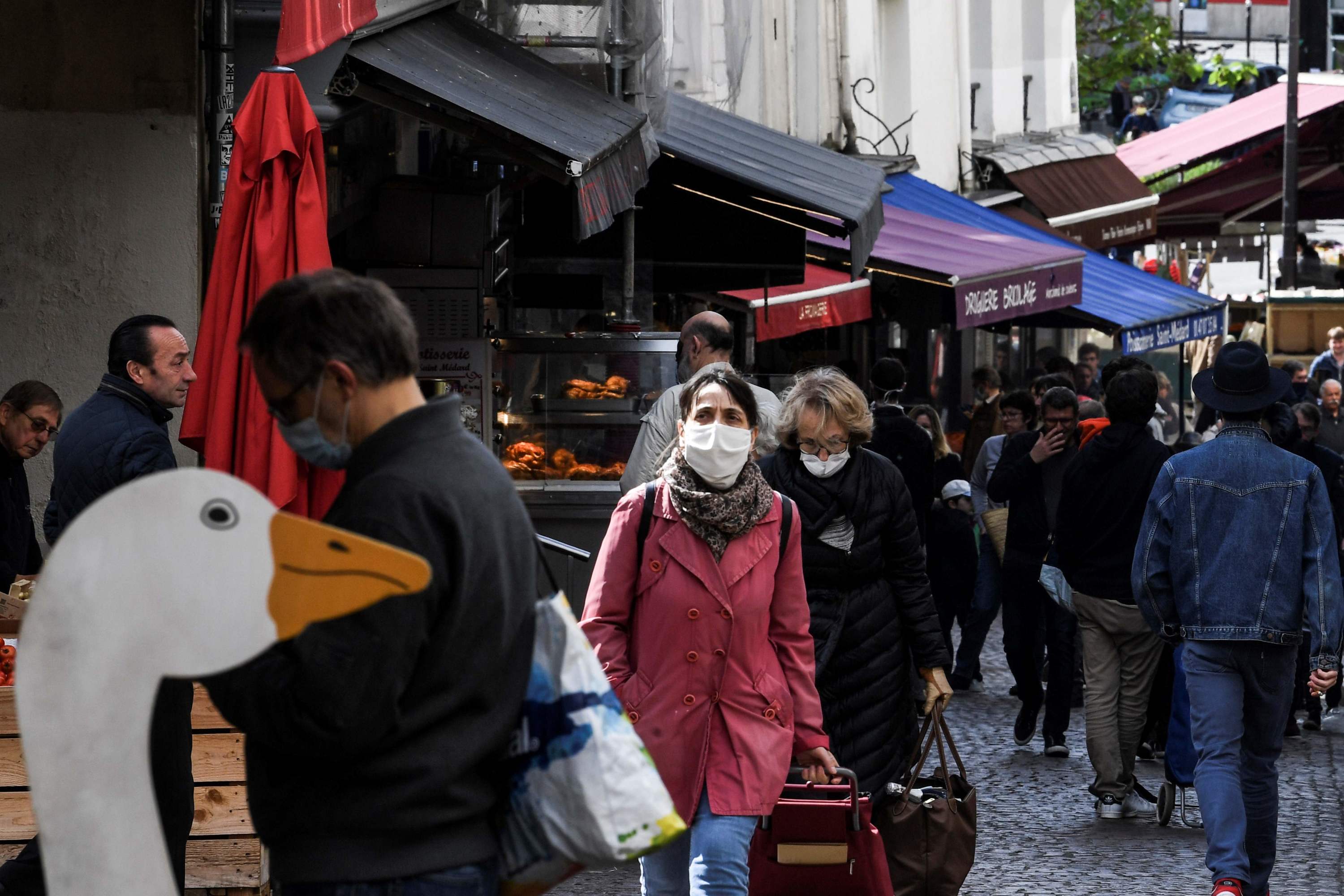While Edouard Philippe called for "good citizenship" and "discipline" during the unveiling of his deconfinement plan on April 28, the French seem to somewhat relax their efforts. The results of the survey drawn up by the association Datacovid and Ipsos, and published in Le Monde, indeed reveal a slight increase in taking liberties within the population, despite confinement.
Read also: LIVE - Coronavirus: the government adopts a bill extending the health emergency until July 24
This study, which is based on a representative sample of 5,001 people, studies and observes, from the start of confinement, the behavior of the population in the face of the Covid-19 crisis. The new barometer data covers the period from April 15 to 21.
Decreased level of respect for barrier gestures
Respect for barrier gestures remains at a high level, but it is declining. Although 92% of French people still say they stay at home, this percentage represents a decrease of 2% in one week. Another element: the distance of one meter. Again, a clear development appeared within a week. According to the results of the barometer, the level of contacts within one meter increases.
Conversely, a figure is increasing: that of the use of the mask. Thus, 26% of French people, an increase of 5%, use it today, or just over one in four French people. First considered by the public authorities as useless, the wearing of a mask is now highly recommended and will be compulsory from May 11 in transport.
Read also: Mask, distancing ... What awaits you at your hairdresser from May 11
Concerning the concerns of the French, the pandemic remains the main concern (73%, - 3%), ahead of the health system (42%, stable). But purchasing power (33%, + 2%), social inequalities (26%, + 3%), public deficits and debt (26%, + 2%) are increasing. With the approach of deconfinement and the resumption of professional activities, there is therefore an increase in economic and social concerns, to the detriment of the health imperative.
Containment more respected in urban areas
The time spent outside their home by the French is another indicator for measuring changes in behavior during confinement. It is in Ile-de-France, one of the regions most strongly affected, that confinement is best respected (1h04 min of output on average, up 5 minutes in a week). On the other hand, behavior is clearly slackening in Franche-Comté (1h27 min, or + 24 minutes), in the Pays de la Loire (1h30 min, + 24 minutes) and in the Center-Val de Loire (1h41 min, + 28 minutes).
Read also: Coronavirus: the great exodus of city dwellers
The study by Datacovid and Ipsos also revealed an interesting phenomenon: the farther you get from urban centers, the more time spent outside the home. In other words, people confined to a house spend more time away from home than those in an apartment. It should also be noted that the 30s and 40s are the ones who go out the most, mainly for professional reasons, the people not working at home being those whose increase in the duration spent outside the home is the most important (4:30 min, + 31 minutes).
Seniors in a hurry to end containment
The barometer also shows the beginning of a social divide within the population: one party wants to quickly end the restrictive measures, while the other expresses its fears of a deconfinement deemed too hasty. Thus, almost two thirds of French people (63%) say they are ready (25% only "quite", 38% "somewhat ready") to return to normal or almost normal activity. 32% are reluctant. In total, more than 6 in 10 French people say they are ready to return to normal or almost normal activity after deconfinement.
Read also: "We will all be afraid of each other": when the prospect of deconfinement worries
Significant differences between regions are emerging. Thus, in Ile-de-France (34%) and in the Grand Est (35%), areas very affected by the pandemic, the share of people who do not consider themselves ready is significant. This is also the case in Hauts-de-France (36%) or in Occitanie (35%). In Brittany (29%), Rhône-Alpes (28%) or Normandy (23%), reluctance is lower.
Disparities also exist according to age. People aged 65 and over, who are the most exposed to the disease, are the most likely to end confinement. Conversely, it is young people aged 25 to 34 who are among the most reluctant (38%) to deal with deconfinement.
See also - Deconfinement: expansion of the list of personnel who will be able to control













